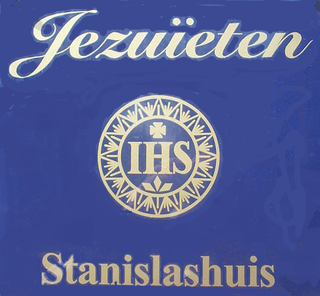Related Research Articles

Education in the Netherlands is characterized by division: education is oriented toward the needs and background of the pupil. Education is divided over schools for different age groups, some of which are divided in streams for different educational levels. Schools are furthermore divided in public, special (religious), and general-special (neutral) schools, although there are also a few private schools. The Dutch grading scale runs from 1 to 10 (outstanding).

Gymnasium is a term in various European languages for a secondary school that prepares students for higher education at a university. It is comparable to the US English term preparatory high school. Before the 20th century, the gymnasium system was a widespread feature of educational systems throughout many European countries.

Matura or its translated terms is a Latin name for the secondary school exit exam or "maturity diploma" in various European countries centered around the former Austro-Hungarian Empire, including Albania, Austria, Bosnia and Herzegovina, Bulgaria, Croatia, Czech Republic, Hungary, Italy, Kosovo, Liechtenstein, Montenegro, North Macedonia, Poland, Serbia, Slovakia, Slovenia, Switzerland and Ukraine.
Tenth grade is the tenth year of formal or compulsory education. It is typically the second year of high school. In many parts of the world, students in tenth grade are usually 15 or 16 years of age.
VWO may refer to:
The International Baccalaureate Diploma Programme (IBDP) is a two-year educational programme primarily aimed at 16-to-19-year-olds in 140 countries around the world. The programme provides an internationally accepted qualification for entry into higher education and is recognized by many universities worldwide. It was developed in the early-to-mid-1960s in Geneva, Switzerland, by a group of international educators. After a six-year pilot programme that ended in 1975, a bilingual diploma was established.

Education in Belgium is regulated and for the most part financed by one of the three communities: Flemish, French and German-speaking. Each community has its own school system, with small differences among them. The federal government plays a very small role: it decides directly the age for mandatory schooling and indirectly the financing of the communities.
The education in Suriname was initially set up in analogy to the Dutch education system. In terms of structure, the education system is now a mixture of school types that were common in the Netherlands before, during and after the Mammoetwet. The language of instruction is Dutch; mainly Surinamese Dutch. The four exceptions to this rule are the International Academy of Suriname, administered by a local Christian foundation, Christian Liberty Academy, administered by the Caribbean Christian Ministries, and the AlphaMax Academy, a private nonsectarian school administered by the AlphaMax Foundation, and since 2011 Suriname International School, which provides k12 online school for high school students.
Voorbereidend wetenschappelijk onderwijs is the highest variant in the secondary educational system of the Netherlands, attended by approximately a fifth of all Dutch high school students. After leaving primary or elementary school students are enrolled in different types of secondary schools, according to their academic ability. The course is a six-year course and successful completion allows the candidate admission to Dutch universities. The VWO is therefore a matriculation exam.
Hoger algemeen voortgezet onderwijs is a stream in the secondary educational system of the Kingdom of the Netherlands and Suriname. It has five grades and is generally attended at ages of 12 to 17. It provides access to the hogeschool-level (polytechnic) of tertiary education.
The education in the Flemish Community covers the Dutch-speaking part of Belgium and consists of three networks (netten): government-provided education (gemeenschapsonderwijs), subsidized public schools and subsidized free schools.

The Hong Kong Diploma of Secondary Education Examination (HKDSE) is an examination organised by the Hong Kong Examinations and Assessment Authority (HKEAA). The HKDSE examination is Hong Kong's university entrance examination, administered at the completion of a three-year senior secondary education, allowing students to gain admissions to undergraduate courses at local universities through JUPAS. Since the implementation of the New Senior Secondary academic structure in 2012, HKDSE replaced the Hong Kong Certificate of Education Examination and Hong Kong Advanced Level Examination.
Propaedeutics or propedeutics is a historical term for an introductory course into an art or science. The etymology of propedeutics comprises the Latin prefix pro, meaning earlier, rudimentary, or in front of, and the Greek paideutikós, which means "pertaining to teaching". As implied by the etymology, propaedeutics may be defined more particularly as the knowledge necessary before, or for the learning of, a discipline, but not which is sufficient for proficiency.
Colegio Arubano is a secondary school in Aruba that serves students in grades seven through twelve from one of its two campuses in either the capital city of Oranjestad or the southern community of Sint Nicolaas. The two campuses have been separated now, and the school in Sint Nicolaas has become a different school with the new name Colegio San Nicolas.
The Sondervick College is a Dutch catholic secondary school located in the village Veldhoven. It provides all three levels of Dutch secondary education: VMBO, HAVO, VWO.

St Stanislas College is a conglomerate of private Catholic secondary schools located in Delft, Pijnacker, and Rijswijk, in the province of South Holland, in the Netherlands.

Lyceum Schöndeln is a secondary school in Roermond, Netherlands. It combines a havo, an atheneum and a gymnasium and incorporates specialisations in both the arts (cultuurprofielschool) and the exact sciences (technasium). The school was formed in 2007 from the merger of the Stedelijk Lyceum and the Bisschoppelijk College Schöndeln.
The Ashram College is a Dutch high school located in Alphen aan den Rijn and Nieuwkoop. It was established in 1929. The school offers VWO excluding or including the classical languages Latin and Greek, HAVO and VMBO-T. Ashram College is a Catholic school.

References
- ↑ "The Netherlands: Voorbereidend Wetenschappelijk Onderwijs (VWO) | UCAS Qualification Information Profiles". qips.ucas.com. Retrieved 2022-05-31.
- ↑ "Wat is het atheneum?". Onderwijs Consumenten Organisatie (in Dutch). 2020-01-16. Retrieved 2022-05-31.